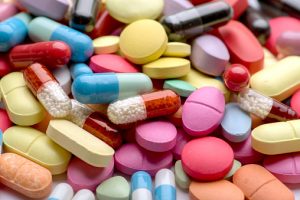FDA Recalls More Drugs From Compounding Pharmacies
 Health care officials in Connecticut were puzzled when they reached for a plastic bag of magnesium sulfate solution – and spotted floating particles inside.
Health care officials in Connecticut were puzzled when they reached for a plastic bag of magnesium sulfate solution – and spotted floating particles inside.
It was later determined to be fungus – similar to what led to a deadly meningitis outbreak late last year connected to a Massachusetts compounding pharmacy that produced injectable steroids.
Our Fall River personal injury attorneys understand that this case involves another compounding pharmacy, although this one, Med Prep Consulting, is located in New Jersey. Yet these batches of medications, used to treat a deadly pregnancy condition known as preeclampsia and also to steady the heartbeat after surgery – were shipped to at least 12 different sites throughout the country.
As a result, the U.S. Food & Drug Administration has ordered all health care providers to immediately halt their use of the product, and the firm has recalled all 83 of the products it manufactures. It has further agreed to halt all operations until further inspections can be conducted.
Records show a prior inspection in November didn’t appear to indicate any significant problems with contamination.
As of yet, there have not been any reports indicating illness or injury resulting from administration of these drugs, but it could be too early yet to know for sure.
The fact is, though, even before the fungal meningitis outbreak that killed 45 people and sickened 650 more last year, compounding pharmacies have been linked to illnesses, safety failures and even deaths.
Compounding pharmacies, if you aren’t familiar, are facilities that custom make and mix certain drugs that are used in clinics, hospitals and by individual patients. Yet, the industry is not as tightly regulated as other pharmacies, and few of these facilities faced any significant consequences, even when oversights and errors resulted in deaths.
A recent investigation by The Washington Post found that both state and federal regulators appeared to have taken little action with regard to systematic inspections and following through with ultimatums for not correcting hazards.
The Post found that serious and potentially deadly problems existed in at least three of the 15 largest compounding pharmacies in the country – not including the New England Compounding Center, where the fungal meningitis outbreak was spawned. These pharmacies make untold millions of dollars with their mass production of medicine – despite the fact that they are actually supposed to be producing them for custom order based on individual patient prescriptions.
In fact, where these firms once supplied about 15 percent of all intravenous drugs about 10 years ago, compounding pharmacies are now supplying about 40 percent of all injectable drugs.
Some of the most common problems in these facilities included medication that was too potent or that was contaminated with bacteria.
Compounding pharmacies started with seemingly good intentions back in the 1990s, with hospitals seeking to outsource the mixing of some of their most dangerous drugs, as nurses had routinely made egregious and sometimes fatal errors in this regard. Compounding pharmacies seemed to be the perfect solution.
The problem is that these facilities are not held to the same regulatory standard, and as it stands can not be compelled to quality control test each batch for proper potency and sterility.
That may change, however, as a number of lawsuits have recently been filed against the NECC, following the fungal meningitis outbreak.
If you have been injured as a result of defective drugs in Massachusetts, contact The Law Offices of Deborah G. Kohl at (508) 677-4900.
